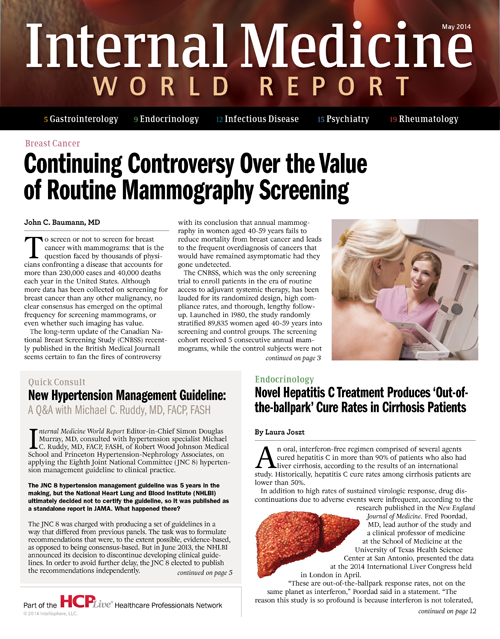Bariatric Surgery Boosts Benefit of Intensive Medical Therapy in Obese Diabetics
Bariatric surgery represents a potentially useful intervention for managing obese type 2 diabetics who would fail to reach treatment goals with intensive medical therapy alone.

Previous trials spanning 1-2 years have demonstrated improved glycemic control and reduced cardiovascular (CV) risks in diabetics who underwent bariatric surgery, indicating that the surgical weight loss intervention is potentially useful in the short-term management of type 2 diabetes.
Now, researchers from the Cleveland Clinic, Brigham and Women’s Hospital, and Harvard Medical School have conducted a longer-term study comparing the outcomes of bariatric surgery combined with intensive medical therapy to intensive therapy alone in type 2 diabetics. Based on their 3-year results published in a May 2014 article in The New England Journal of Medicine, the investigators concluded that weight loss surgery plus intensive medical therapy yields a significantly greater improvement in glycemic control.
For the study, 150 obese adult patients with uncontrolled type 2 diabetes were randomized to receive intensive medical therapy with Roux-en-Y gastric bypass, sleeve gastrectomy, or no additional intervention. At the 3-year follow-up mark, those who received bariatric surgery plus intensive medical therapy achieved superior results in reaching the targeted HbA1c goal of ≤6%. Additionally, the bariatric surgery groups achieved favorable results in secondary endpoints that included body mass index (BMI), body weight, waist circumference, triglycerides, and high-density lipoprotein (HDL) cholesterol.
In fact, some of the bariatric surgery patients underwent complete diabetes remission, while others experienced significant reductions in their need for pharmacologic treatment. The researchers also measured CV indices throughout the study and noted many patients in the bariatric surgery group had lower dose requirements for lipid-lowering and antihypertensive medications.
Thus, the study authors concluded bariatric surgery represents a potentially useful intervention for managing type 2 diabetics who would fail to reach treatment goals with intensive medical therapy alone. The researchers noted the study’s result may become more significant as clinical guidelines and insurance companies lower their BMI thresholds for bariatric surgery and make more patients eligible for the intervention.
